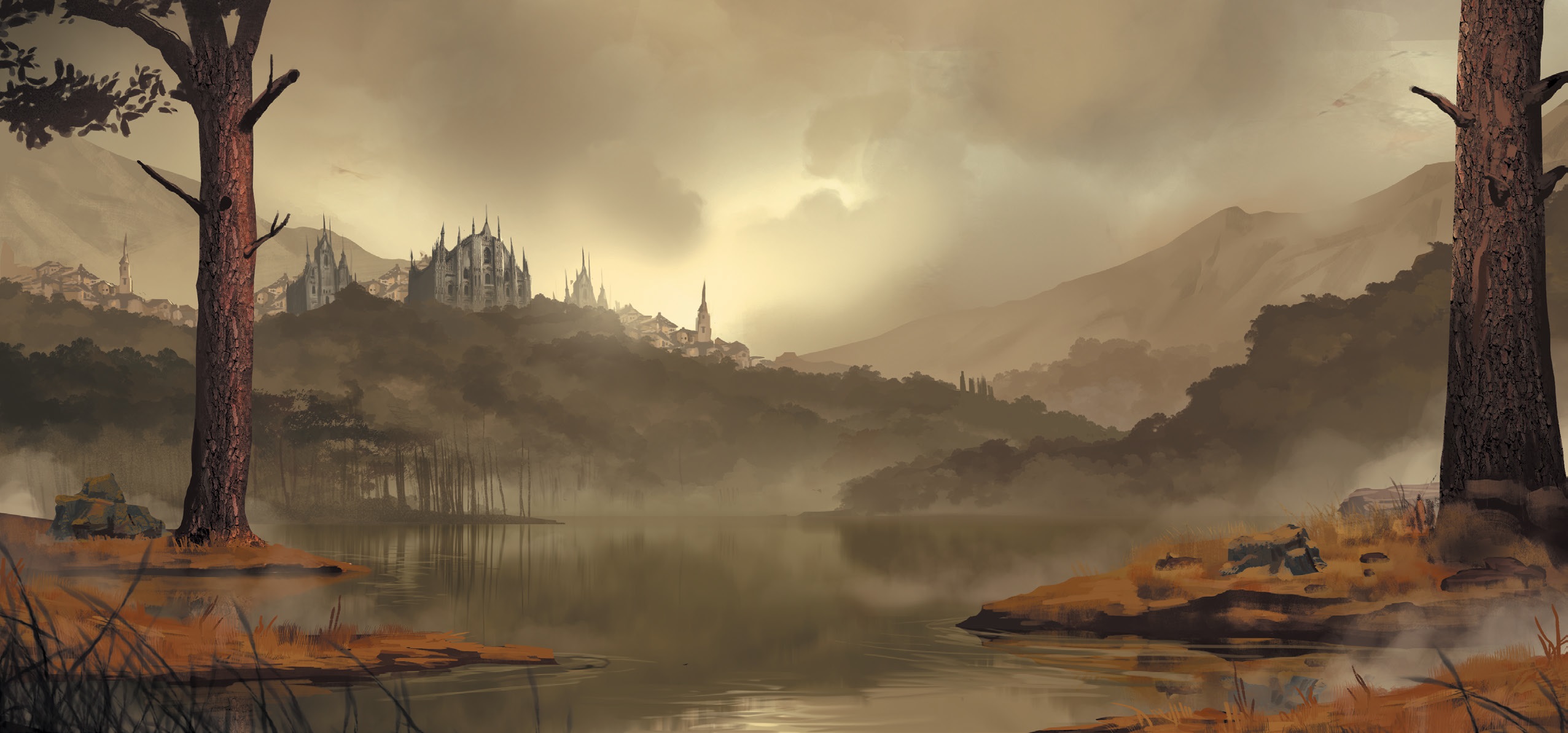The Inquisition
The Inquisition is a secretive order within the Vaticine Church, created by the Third Prophet following his rise to power, charged with seeking out and destroying sorcery. Inquisitors were answerable only to the Hierophant, and had vast authority over Church procedure. Vaticines were expected to assist them in any way they could. Thanks to their efforts, sorcery in civilized Théah remained underground for many centuries.
Luckily, they were always kept in check by the Hierophant. Each successive leader kept a close eye on the Inquisition, limiting its membership and ensuring that its power never grew beyond control. Overly ambitious Inquisitors would be quietly removed from their positions, which kept the order focused on its duties instead of seeking to control the Church.
Over the centuries, the Church has gradually grown more conservative, giving the Inquisition greater leeway in carrying out its duties. That rising tide crested when the current Hierophant was murdered. Now, the Inquisition is answerable to no one and cannot be stemmed until a new Hierophant is chosen.
Cardinal Esteban Verdugo has moved quickly to seize power, expanding the Inquisition’s goals and filling its ranks with devout fanatics. They declared war on Théah’s universities: burning books and hanging professors who oppose them. Their enemies are kidnapped and executed as heretics; many who might oppose them are too frightened to act. In the space of a decade, they have come to dominate the Church’s affairs.
Organization and Methods
The Inquisition is organized around a small group of “High Inquisitors”—priests and Bishops charged with fulfilling the Third Prophet’s edicts. They answer to Cardinal Verdugo, and employ a bewildering array of assistants, lackeys and contacts, which they control through loyalty, fear or blackmail. Those willingly involved in the Inquisition’s affairs may hold the title of “Inquisitor” if they wish—a rank beneath the High Inquisitors who command them. Because the order is ostensibly secret, Inquisitors and High Inquisitors all have normal positions within the Church, masquerading as ordinary priests or mundane agents of Vaticine authority. Their targets are heretics—scholars, sorcerers, Objectionists and anyone who questions the Church’s policies. When they have amassed enough evidence, they strike without warning, using surprise and terror to keep their target confused. They attack at night if they can and always make sure the local authorities cannot intervene. Victims are hanged on sight, or burned if the Inquisitors have time; experiments, books and research notes are burned, as well. The Inquisitors then vanish without a trace, leaving cryptic warnings to accompany the bodies. The Inquisition holds the most power in Castille— the only Nation where they can move openly among the populace, without hiding their true purpose. Other Nations require more subtlety. Montaigne Inquisitors use the peasantry—who are still largely Vaticine—to mask their movements against the heretical nobility. The chaos of Eisen makes it easy for them to operate in that broken country, although they must avoid the forces of the Eisenfürsten who dislike religious fanatics. Vodacce, while dangerous, is tightly wound with political infighting, which the Inquisition can use to their advantage. There are few Inquisitors in Avalon, the Commonwealth, Ussura, or Vesten; all these Nations are hostile to Vaticine zealots. Two forces currently stand against the Inquisition: the secret society known as the Invisible College and the mysterious vigilante called El Vagabundo. So far, they have been able to stem the worst of Verdugo’s crimes, but unless a new Hierophant is chosen soon, their efforts can only slow him down.
The Inquisition is organized around a small group of “High Inquisitors”—priests and Bishops charged with fulfilling the Third Prophet’s edicts. They answer to Cardinal Verdugo, and employ a bewildering array of assistants, lackeys and contacts, which they control through loyalty, fear or blackmail. Those willingly involved in the Inquisition’s affairs may hold the title of “Inquisitor” if they wish—a rank beneath the High Inquisitors who command them. Because the order is ostensibly secret, Inquisitors and High Inquisitors all have normal positions within the Church, masquerading as ordinary priests or mundane agents of Vaticine authority. Their targets are heretics—scholars, sorcerers, Objectionists and anyone who questions the Church’s policies. When they have amassed enough evidence, they strike without warning, using surprise and terror to keep their target confused. They attack at night if they can and always make sure the local authorities cannot intervene. Victims are hanged on sight, or burned if the Inquisitors have time; experiments, books and research notes are burned, as well. The Inquisitors then vanish without a trace, leaving cryptic warnings to accompany the bodies. The Inquisition holds the most power in Castille— the only Nation where they can move openly among the populace, without hiding their true purpose. Other Nations require more subtlety. Montaigne Inquisitors use the peasantry—who are still largely Vaticine—to mask their movements against the heretical nobility. The chaos of Eisen makes it easy for them to operate in that broken country, although they must avoid the forces of the Eisenfürsten who dislike religious fanatics. Vodacce, while dangerous, is tightly wound with political infighting, which the Inquisition can use to their advantage. There are few Inquisitors in Avalon, the Commonwealth, Ussura, or Vesten; all these Nations are hostile to Vaticine zealots. Two forces currently stand against the Inquisition: the secret society known as the Invisible College and the mysterious vigilante called El Vagabundo. So far, they have been able to stem the worst of Verdugo’s crimes, but unless a new Hierophant is chosen soon, their efforts can only slow him down.



Comments